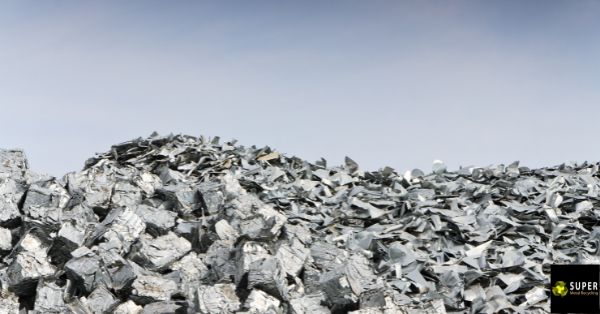Scrap metal recycling is an art that calls for careful preparation and sorting; it goes beyond simply bringing your used metal goods to a recycling facility. To improve recycling efficiency and minimize waste in Melbourne, where sustainability is a key issue, mastering the skill of sorting scrap metal is crucial. We’ll offer insightful advice in this blog post to assist you develop as a scrap metal recycler in Melbourne.
1. Understand Metals
It’s important to understand the different types of metals you’re working with before you start sorting. Aluminum, steel, copper, brass, lead, and stainless steel are typical recyclable metals. To make appropriate sorting judgments, familiarize yourself with the features and attributes of each metal.
Utilize a magnet.
A basic magnet is a useful tool for preliminary sorting. Since magnets adhere to ferrous metals like iron and steel, if an item is recyclable as ferrous metal, it probably is. Aluminum and copper are non-ferrous metals and won’t pull a magnet.
3. Sort metals according to type
Sorting your scrap metal into distinct categories according to metal type will increase its value. For each metal, select a bin or container, and make sure it is clean and free of impurities. This makes it simpler to ship your metals to Melbourne recycling facilities and sell them there.
4. Take Away Non-Metallic Parts
Remove any non-metallic components before bringing your metal products to a recycling facility. Plastic, rubber, glass, and insulation fall within this category. Cleaning your scrap metal guarantees that it complies with recycling center requirements and prevents contamination problems.
5. Shine Up the Metals
Cleaning your scrap metal makes it more recyclable and increases the price you can get for it. Your metal objects should be cleaned of grime, grease, and other contaminants. You might wish to use the proper techniques to remove paint or coatings off aluminum and copper.
Maintain Metals Dry
Corrosion and quality issues with scrap metal can be brought on by moisture. Keep your scrap metals dry when storing them, and cover them if required to keep out rain or other sources of moisture.
7. Be careful
Handling scrap metal should always be done with safety in mind. Wear the proper safety equipment, such as gloves and goggles, to prevent cuts, abrasions, and exposure to dangerous substances. To avoid injuries, use caution when handling large objects.
8. Know the rules governing recycling centers
Melbourne’s recycling facilities may have different rules and specifications for recycling scrap metal. Keep up with their policies, acceptable materials, and pricing details. You may streamline your recycling efforts and make more educated judgments with the aid of this knowledge.
9. Encourage Sustainable Behavior
Encourage the recycling of scrap metal in Melbourne among your friends, family, and neighbors. You can encourage others to become more environmentally sensitive and support the city’s sustainability goals by raising awareness and imparting your knowledge.
Conclusion
Effective sorting of scrap metal is essential to Melbourne’s scrap metal recycling. You may make sure that your recycling efforts are not only financially lucrative but also environmentally responsible by heeding the advice in this article. Being an expert at sorting scrap metal is not only a personal accomplishment; it also helps Melbourne meet its goals for sustainability and sound waste management.
If you are at Frankston, Victoria 3199, below is the best way to visit us.
Super Metal Recycling
345 Frankston – Dandenong Road, Dandenong South VIC 3175
(03) 9706 4909
* Find us on Google Map


Recent Comments